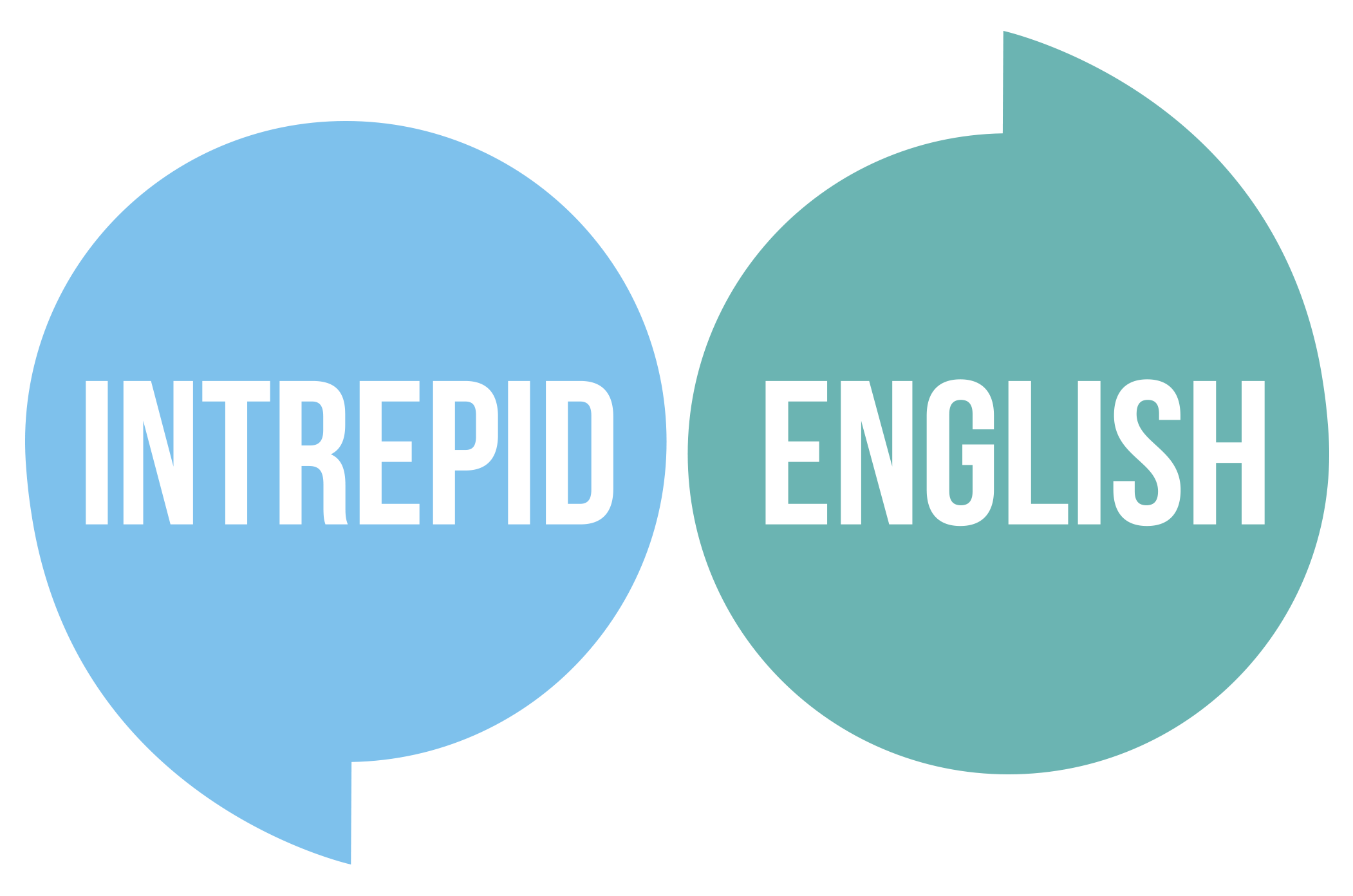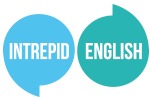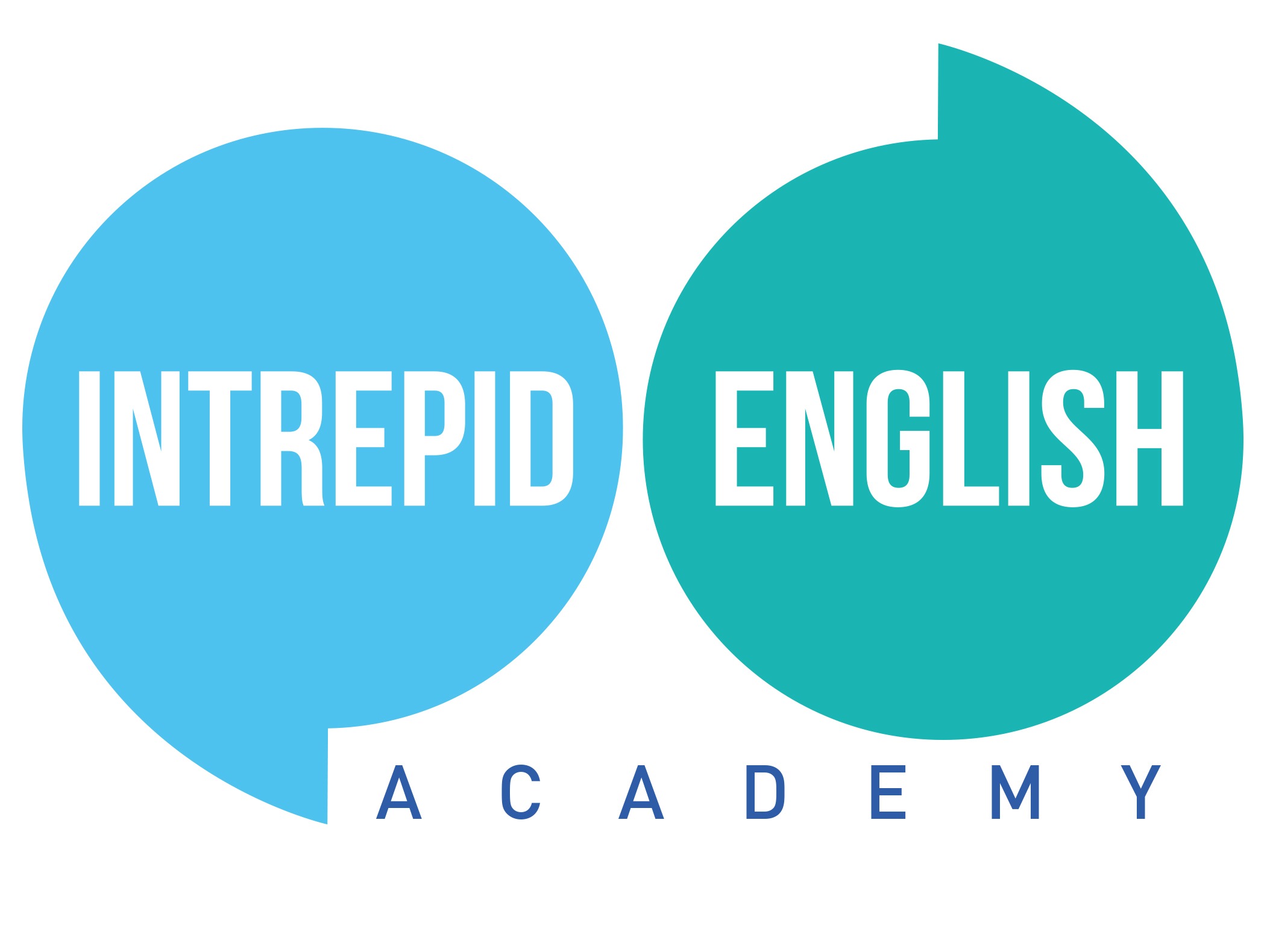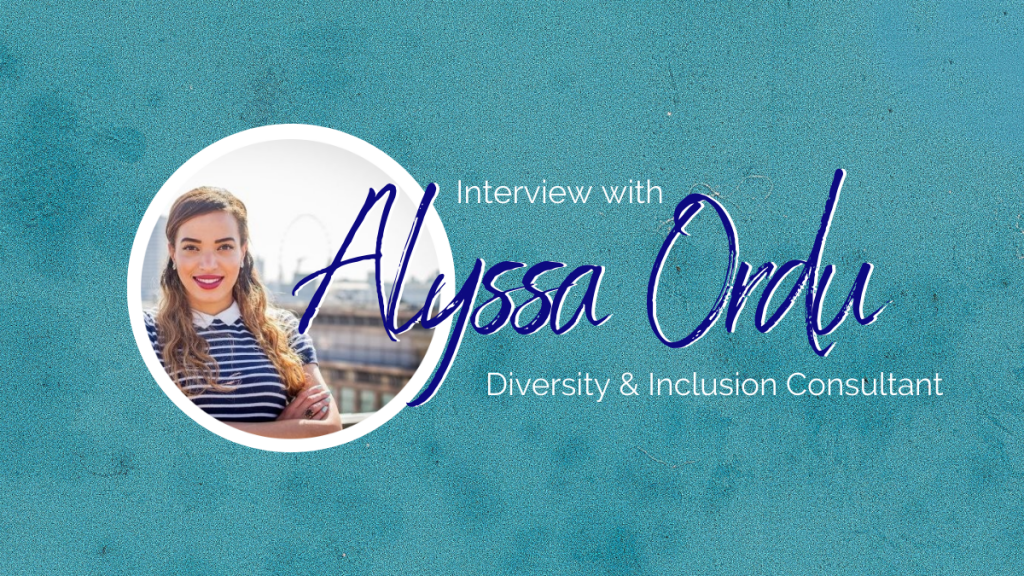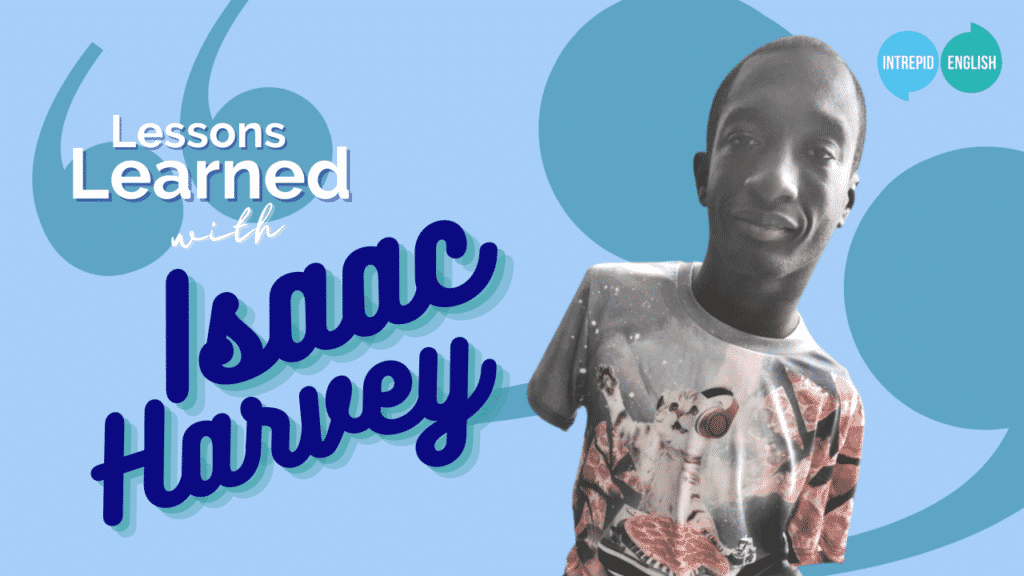Clothing Phrasal Verbs
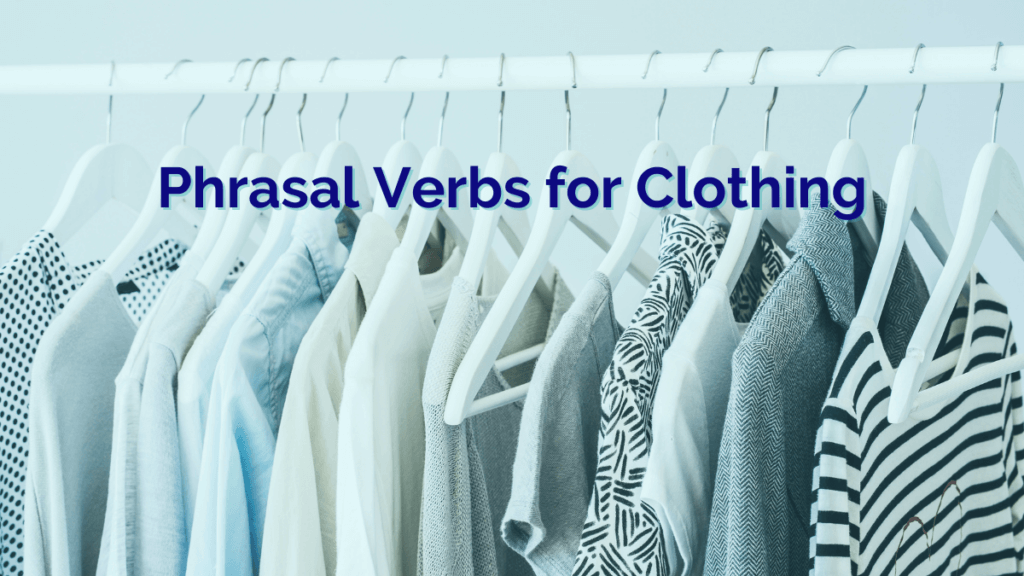
If you’ve been studying English for a while, you’ll undoubtedly have stumbled across several phrasal verbs. Phrasal verbs are extremely common in English.
They pop up everywhere in everyday conversation. If you’re not looking out for them, you may not even realise you are using them! In this blog post we will go over some commonly-used phrasal verbs related to clothing.
Some of these clothing phrasal verbs are separable, meaning that you can use a noun or object pronoun in the centre of the verb and preposition. Other phrasal verbs are inseparable, meaning the noun or object pronoun must go afterwards.
This blog post deals with clothing phrasal verbs. Our students frequently ask about this English grammar topic. So much so that we decided to make a whole course dedicated to it! Check out our Figure Out Phrasal Verbs course in the Intrepid English Academy and learn how to use phrasal verbs for all occasions, from movement phrasal verbs, to business phrasal verbs, relationship phrasal verbs to travel phrasal verbs and more.
1. Try on
When you want to check if a piece of clothing looks good on you or fits properly, you try it on.
- “I’m going to go to the changing rooms and try these dresses on.”
- “I think these trousers are going to be too big but I’ll try them on just to check.”
2. Put on/take off
When you start wearing a piece of clothing, you put it on. When you remove a piece of clothing you take it off.
- “I put my coat on every morning before I leave the house.”
- “Please take your shoes off before you enter the living room.”
3. Have on
To be wearing a piece of clothing is to have (the clothing) on. We can add the object in the middle of the verb and the preposition, because this phrasal verb is separable.
- “Mary has her wedding dress on in this picture.”
- “It’s so cold today, I have two jumpers on!”
4. Dress up/ dress down
To dress up is to dress nicely, normally for a fancy occasion or celebration. Dress up can also be used to describe when you dress in fancy dress or a costume to impersonate a character.
Similarly, to dress down is to dress in a casual or relaxed fashion. Some office workplaces have dress down Friday’s, where employees come in more casual clothing because it’s almost the weekend.
- “I’m going to dress up for David’s birthday drinks tonight. It will be nice to see everyone.”
- “All the children dressed up as their favourite fictional character to celebrate World Book Day.”
- “I always dress down on Fridays. It’s so nice not to have to wear a suit and tie for a change.”
5. Wrap up
If it’s cold outside, you should wrap up and wear plenty of layers to keep yourself warm.
- “Make sure you wrap up well before going out, it’s forecast to snow later.”
- “Oh the baby looks so cute all wrapped up in his new coat!”
6. Hang Up
You may have already read about this one in Tom’s blog post on phrasal verbs with ‘hang.’ When you are putting an item of clothing away in your wardrobe you hang it up using a clothes hanger.
- “I have finished ironing these shirts. Could you please hang them up upstairs?”
- “There are a lot of coats hanging up in the hallway.”
Exercise:
Now test your understanding. Fill in the spaces with the correct phrasal verb.
1. “The children need to ____________ before going out to play in the snow.”
2. “I can’t believe I’ve come to work and I still _________ my pyjama top _____. How embarrassing!”
3. “I ________ my work trousers ________ and ___________ my pyjama bottoms ______ as soon as I arrive home.”
4. “Please make sure you _________ that dress ________ when you take it off. I don’t want it to get creased.”
5. “We are going bridesmaid dress shopping today. I’m so excited to __________ all the dresses______!”
6. “Louisa’s party is superhero themed. I’m going to ____________ as Batman.”
Discussion questions: (free answer)
1. If you’re working from home right now are you dressing down in loungewear and pyjamas? Or do you put your normal work clothes on every day?
2. Have you ever dressed up for a fancy dress party? Who did you dress up as?
Post your answers in the comments. You can read more blog posts on phrasal verbs here, or check out the extensive Figure Out Phrasal Verbs course in the Intrepid English Academy.
If you have any questions about the website, booking your lessons, joining Group Classes, using the flashcards or studying the courses in the Intrepid English Academy, you can just open the Chat Box and type in your question.

Prefer to talk to us directly? Book a free trial lesson to discuss your English goals with an experienced and friendly Intrepid English Teacher who will help you to plan a learning strategy that’s right for you.
SmartWorks
On the topic of clothes, Intrepid English is all about empowerment, which is why we are so happy to be working with Smart Works, which is a charity that exists to give women the confidence they need to reach their full potential, secure employment and change the trajectory of their lives.
As specialists in teaching job interview skills, the Intrepid English Teachers are delighted to help Smart Works by volunteering our time to help unemployed women with English as a second language to develop their skills and confidence to prepare for job interviews. It’s not only the teachers who support this fantastic cause, did you know that 6% of all Intrepid English sales are donated to three charities, including Smart Works?
On 21st October, Lorraine attended a very special fundraising event, held by Smart Works. Here are some photos of Lorraine and Smart Works Outreach Officer Abbie at the event.
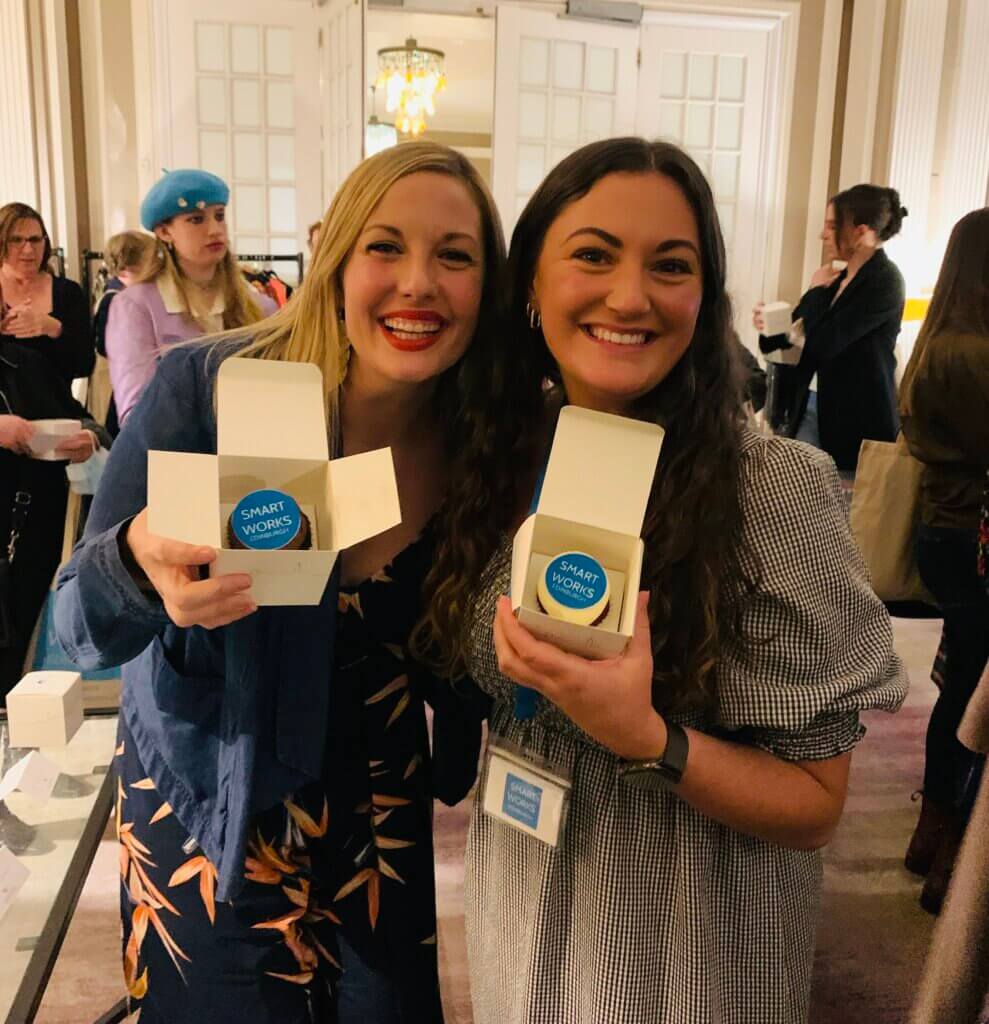
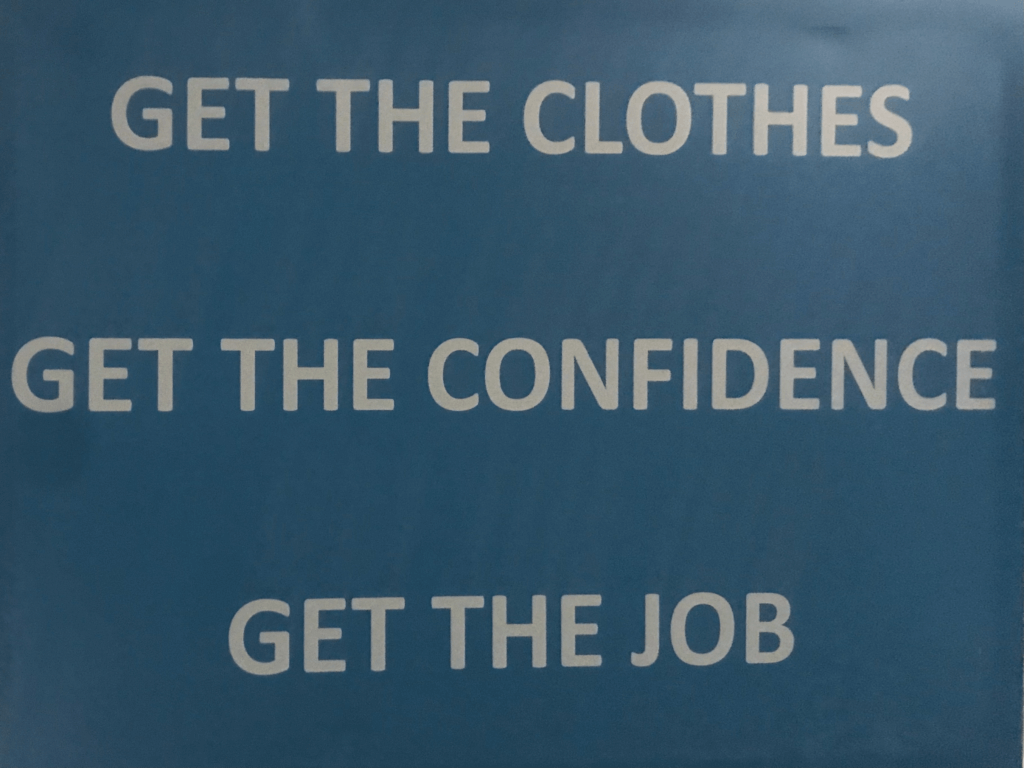
Thanks for subscribing to our newsletter!
